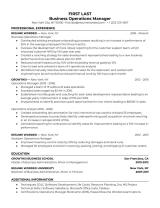How to negotiate a raise from hourly to salary?
Negotiating a raise from an hourly wage to a salaried position can be a significant step in your career. Here are some tips and strategies to help you navigate this negotiation successfully:
Research and Preparation:
Understand Industry Standards: Research salary ranges for your position in your industry and geographic location. Websites like Glassdoor, PayScale, and the Bureau of Labor Statistics can provide helpful salary data.
Assess Your Value: Reflect on your contributions to the company, including your skills, experience, and accomplishments. Make a list of the reasons why you believe you deserve a salary increase.
Identify Your Target Salary: Determine the salary you are aiming for and be prepared to justify why it's fair and appropriate based on your research and value to the organization.
Timing and Approach:
Choose the Right Time: Request a meeting with your supervisor to discuss your salary when you have achieved significant accomplishments, taken on new responsibilities, or completed a successful project. Timing is crucial.
Request a Meeting: Send an email or speak with your supervisor to request a formal meeting to discuss your compensation. Express your interest in transitioning from hourly to salaried.
Present Your Case:
Emphasize Your Contribution: During the meeting, highlight your achievements and contributions to the company. Demonstrate how you've gone above and beyond your job description.
Explain Your Reasons: Articulate why you believe the transition to a salaried position is appropriate. This may include greater commitment to the organization, stability, and the desire to take on more responsibilities.
Offer a Proposal: Provide a clear and concise proposal that includes your desired salary, the benefits of the change, and how it aligns with your career goals.
Be Flexible:
Consider Benefits: In some cases, transitioning to salary may result in additional benefits or perks. Be open to discussing other elements of your compensation package, such as paid time off, health benefits, or retirement contributions.
Negotiate Responsibly: If your initial proposal is met with resistance, be willing to negotiate and find a middle ground that works for both you and your employer.
Maintain a Positive Attitude:
Stay Professional: Maintain a positive and professional demeanor throughout the negotiation. Be prepared for potential pushback or counteroffers.
Express Gratitude: Regardless of the outcome, express gratitude for the opportunity to discuss your compensation and emphasize your ongoing commitment to the organization.
Follow Up:
- Request a Response: If your employer needs time to consider your request, inquire about when you can expect a response. This demonstrates your seriousness and commitment to the process.
Consider Alternative Offers:
- If your current employer is unable to meet your salary expectations, it may be worth exploring opportunities with other employers who are willing to offer a salary that aligns with your goals.
Seek Legal Advice:
- If you believe your request for a salary increase is met with discrimination or retaliation, it may be advisable to consult with a legal professional or the HR department.
Negotiating a raise from an hourly wage to a salary is a significant career step. Be well-prepared, professional, and assertive in your discussions, and focus on demonstrating your value to the organization. It's essential to approach this negotiation as a mutually beneficial process that aligns your compensation with your contributions and career goals while meeting your employer's needs and expectations.
Negotiating a Raise: Strategies for Transitioning from Hourly to Salary
Negotiating a raise is never easy, but it can be especially challenging when you are trying to transition from hourly to salary pay. Here are a few strategies to help you succeed:
- Do your research. Before you start negotiating, it is important to know your worth. Research salaries for similar positions in your area and industry. This will give you a good idea of what to ask for.
- Be prepared to walk away. If you are not happy with the offer you receive, be prepared to walk away. This shows your employer that you are serious about your request and that you are willing to stand up for yourself.
- Be confident. Confidence is key in any negotiation. Believe in yourself and your value to the company.
- Be prepared to compromise. It is unlikely that you will get everything you ask for in a negotiation. Be prepared to compromise and meet your employer halfway.
Here are some specific tips for negotiating an hourly to salary transition:
- Highlight your accomplishments. When you are negotiating a raise, it is important to highlight your accomplishments and contributions to the company. Be specific and quantify your results whenever possible.
- Explain why you deserve a salary. Explain to your employer why you deserve a salary instead of an hourly wage. For example, you may want to point out that you have taken on more responsibility or that you have developed new skills that are valuable to the company.
- Be realistic in your demands. Don't ask for too much or you will likely lose credibility. Be realistic in your demands and be prepared to compromise.
Earning a Promotion: Successfully Negotiating Hourly to Salary Transition
One of the best ways to transition from hourly to salary pay is to earn a promotion. When you are promoted, you will typically receive a salary increase, as well as other benefits such as increased vacation time and health insurance.
To increase your chances of earning a promotion, focus on your performance and make sure that you are meeting or exceeding expectations. Be proactive and take on new challenges. Also, build relationships with your manager and other key decision-makers in the company.
Once you have earned a promotion, be prepared to negotiate your salary. Use the strategies outlined above to get the best possible offer.
The Art of Salary Negotiation: Moving from Hourly Pay
Salary negotiation is an art form. It takes practice and skill to be successful. Here are a few additional tips to help you negotiate a raise from hourly to salary pay:
- Be positive and enthusiastic. When you are negotiating, it is important to be positive and enthusiastic. This will show your employer that you are excited about the opportunity and that you are confident in your abilities.
- Be professional. Even if you are feeling nervous, it is important to stay professional during the negotiation process. Avoid using emotional language or making threats.
- Be respectful. Remember that you are negotiating with a human being. Be respectful of their time and their opinion.
By following these tips, you can increase your chances of successfully negotiating a raise from hourly to salary pay.













